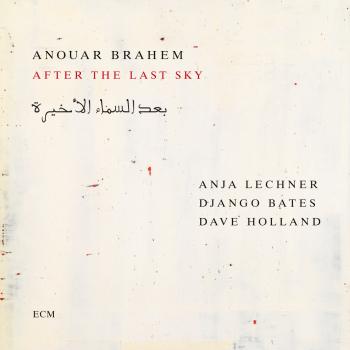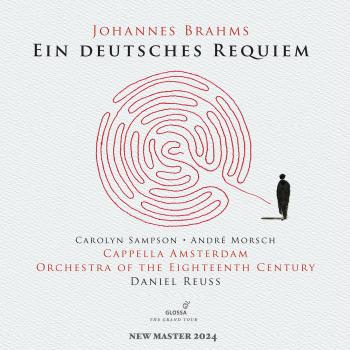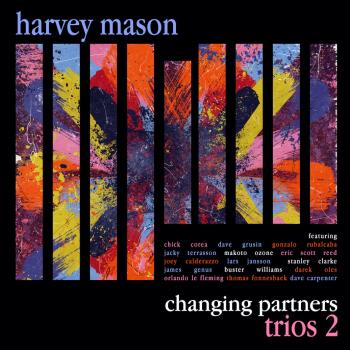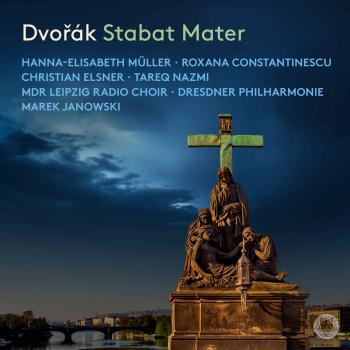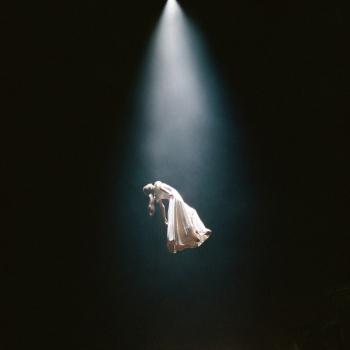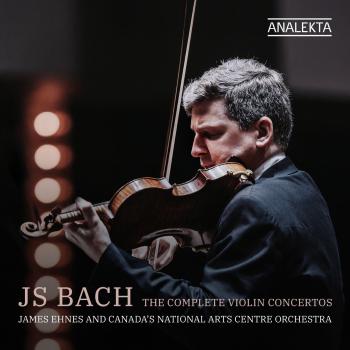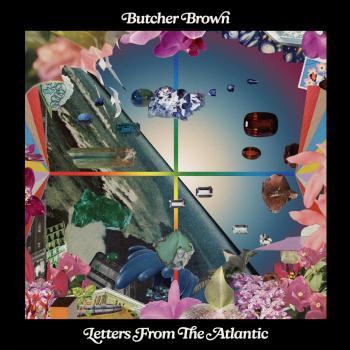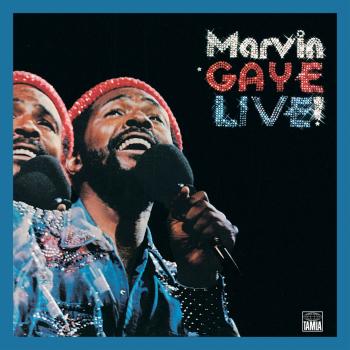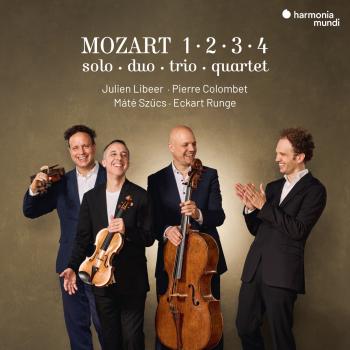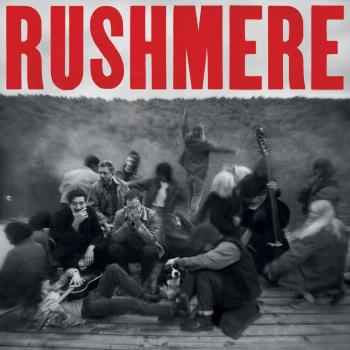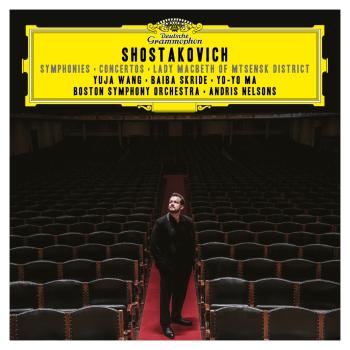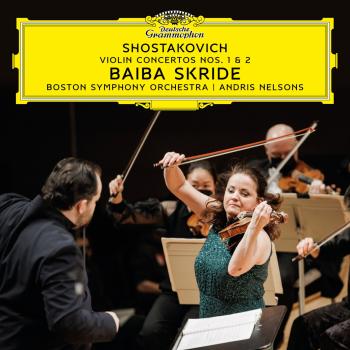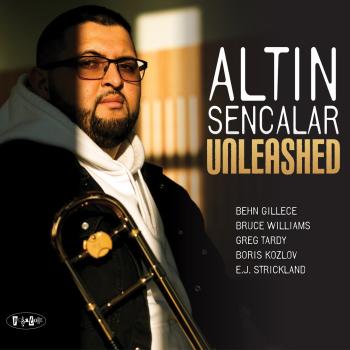
Una Furtiva Lagrima - Donizetti & Bellini Arias Juan Diego Flórez & Orchestra Sinfonica di Milano Giuseppe Verdi
Album info
Album-Release:
2002
HRA-Release:
05.10.2012
Label: Decca Classics
Genre: Classical
Subgenre: Vocal
Artist: Juan Diego Flórez & Orchestra Sinfonica di Milano Giuseppe Verdi
Composer: Gaetano Donizetti (1797-1848), Vincenzo Bellini (1801-1935)
Album including Album cover
I`m sorry!
Dear HIGHRESAUDIO Visitor,
due to territorial constraints and also different releases dates in each country you currently can`t purchase this album. We are updating our release dates twice a week. So, please feel free to check from time-to-time, if the album is available for your country.
We suggest, that you bookmark the album and use our Short List function.
Thank you for your understanding and patience.
Yours sincerely, HIGHRESAUDIO
- Rita
- 1 Allegro io son 03:44
- L'elisir d'amore Act 2
- 2 'Una furtiva lagrima' 04:42
- I Capuleti e i Montecchi: Eccomi in lieta vesta Lib: Romani Act 1
- 3 O, di Capellio generosi amici...L'amo tanto, e m'è sì cara 09:56
- Don Pasquale Act 2
- 4 Povero Ernesto! Cercherò lontana terra 09:29
- 5 Com'è gentil...tornami a dir 03:53
- 6 Tutto è sciolto...Ah, perchè non posso odiarti 09:43
- 7 Ah non sogno...Disperato 08:29
- 8 A te, o cara 06:56
- 9 Ah! mes amis, quel jour de fête! 07:03
Info for Una Furtiva Lagrima - Donizetti & Bellini Arias
After his sensational debut album of Rossini Arias (with Riccardo Chailly), and a developing career that has resulted in invitations from the world's most important operas houses to sing in productions of 19th century Italian operas, Juan Diego Flórez now presents an album devoted to Bel Canto arias from operas by Bellini and Donizetti. This second Flórez album has an even broader appeal than his debut disc, with such popular numbers as 'Una furtiva lagrima' and the spectacular 'Ah! Mes amis' with its sequence of top 'Cs.'
'By now the glories of Juan Diego Florez’s voice and the way he uses it should be well known: a stunning agility wedded to sweetness; an absolutely even register from bottom to easy, focused top; a youthful, zesty, loving approach to singing that communicates instantly; and an interest in the text that completes the operatic picture. In the past he has been criticized for producing some nasal tones, but they are nowhere to be found here. Indeed, Florez’s sound, which he is capable of darkening slightly to avoid a sameness of tone that might try your ear over a period of more than an hour, is now just right–natural, open, and skilled enough to sound conversational.
He sings nine selections here, from a sweet, gentle, unfussy rendition of the aria from which the album takes its title to Tonio’s “A mes ami”, with its nine high-Cs, every one nailed right in its center and sounding like a note rather than an effort. He interprets Ernesto’s lament from Don Pasquale without a hint of the whining that normally comes along with it, and the high D-flat that caps its cabaletta is a beaut. “Com’e gentil” never quite works out of context and it doesn’t here either; indeed, it’s the only non-impressive piece in the recital, lacking the dreaminess it requires. Tebaldo’s recitative and aria from I Capuleti is delivered with strength and conviction, and the cabaletta has plenty of passion. A scena from the recently discovered Elisabetta proves itself fascinating, and it’s good to hear it sung with conviction. (The accompanying notes tell us nothing about the opera itself. In fact, it is a revised version of the composer’s Otto Mesi in due Ore, also known as L’esiliati in Siberia. The score was found in a basement in Covent Garden in 1984.)
Florez’s smooth legato and morbidezza are in evidence in Arturo’s “A te o cara”, and for once the huge leap to high C-sharp is elegant and expressive rather than a lunge. A scene from La sonnambula exhibits the tenor’s ability with exclamatory singing, and he manages to express the character’s anger and grief (not to mention those remarkable high notes again). Last, but first on the recital, is an oddity from Donizetti’s Rita, in which the singer giddily expresses his joy at being a bachelor again. It’s a sheer delight and you’ll want to hear it again the moment it’s over.
Decca has provided a classy frame for Florez: conductor Riccardo Frizza seems to really know his bel canto, his orchestra plays handsomely (including the difficult horn solo in the first Don Pasquale aria), and a chorus and supporting singers are provided to make scenes complete. The chorus is good; the less said the better about the lackluster soprano who sings Amain and Elvira; and the others are good enough. This is a major album by a major artist–a must for lovers of great tenorizing.' (Robert Levine, Classic Today)
Juan Diego Flórez, tenor
Nikola Mijailovic, bass
Nicola Ulivieri, bass
Ermonela Jaho, soprano
Orchestra Sinfonica e Coro di Milano Giuseppe Verdi
Riccardo Frizza, conductor
Recorded at Grosser Saal, Musikverein, Vienna, 28–30 April (live recording), 22 December 200
0
Executive and Recording Producer: Andrew Cornall
Balance Engineer: Philip Siney
Recording Facilities by Auditorium di Milano & Vida Studios S.r.l.
Technical Engineer: Roberto Brenna, Vida Studios S.r.l.
Editing Facilities by Emil Berliner Studios
Recording Editor: Ingmar Haas
Recording Location: Auditorium di Milano, Milan, Italy, September & November 2002
Juan Diego Flórez
was born in 1973 and studied music both in his native Lima and at the Curtis Institute in Philadelphia. In 1996 he made his official stage debut in Matilde di Shabran at the Rossini Opera Festival in Pesaro, where his expressive voice and astonishing agility made him an overnight sensation and led to his debut at La Scala the same year, aged only 23. Since then, he has appeared regularly at all the major international opera houses under the world’s leading conductors.
As today’s bel canto tenor of choice, Flórez has won particular acclaim in the leading tenor roles of Rossini, Donizetti and Bellini, as well as in operas by Verdi (Rigoletto and Falstaff), Puccini (Gianni Schicchi),Gluck (Armide), Mozart (Mitridate)and Nino Rota (Il cappello di paglia di Firenze). In 2007 he broke a 75-year tradition at La Scala by singing an encore in Donizetti’s Fille du regiment, the aria “Ah! mes amis” with nine high Cs, and he created a similar sensation in New York when he repeated the same feat at the Metropolitan in 2008. He is also active as a recitalist and concert artist in works including Rossini’s Stabat Mater.
Recent seasons have seen him in L’elisir d’amore at the Vienna State Opera and at the Met, Il barbiere di Siviglia in Lima, Le comte Ory at the Met, I puritani in Tokyo, Linda di Chamounix in Barcelona, Rigoletto in Zurich, Matilde di Shabran in Pesaro, Guillaume Tell in Lima and Pesaro, Les Pêcheurs de perles in Madrid, La donna del lago at Covent Garden, and La Fille du régiment in Vienna, as well as in a concert at Machu Picchu with Gustavo Dudamel and the Simón Bolívar Symphony Orchestra. 2014 brings Sonnambula in Barcelona, Fille du régiment at Covent Garden, Roméo et Juliette in Lima, Cenerentola at the Met, Barbiere in Munich, Comte Ory at La Scala and La Favorite at the Salzburg Festival, as well as concerts in Marseille, Istanbul, Zurich, Geneva, Madrid, Liège, Baden-Baden, Ludwigshafen, Munich and Vienna.
Juan Diego Flórez has been an exclusive Decca artist since 2001, recording numerous solo albums and complete operas on CD and DVD; many of them have won awards including Germany’s Echoand the Cannes Classical Award. Among his more recent releases are complete recordings of Bellini’s La sonnambula, on CD with Cecilia Bartoli and on DVD with Natalie Dessay, Gluck’s Orphée et Eurydice with Ainhoa Garmendia, Bel Canto spectacular – nominated for a Grammy® 2010 as “Best Classical Vocal Performance” – as well as a 2010 CD release of sacred songs entitled “Santo”. 2012 saw the DVD release of Rossini’s Zelmira, recorded at the 2009 Pesaro Rossini Festival, while 2013 brought Rossini’s Matilde di Shabran from the Teatro Comunale of Bologna. Scheduled for release in 2014: his first all-French album “L’Amour”, a survey of operatic arias from Donizetti to Massenet.
The Peruvian tenor has also received several other international critics’ prizes and been decorated with its highest accolade by the government of Peru. In 2012 he was designated a UNESCO Goodwill Ambassador and honoured as Kammersänger in Vienna.
This album contains no booklet.

